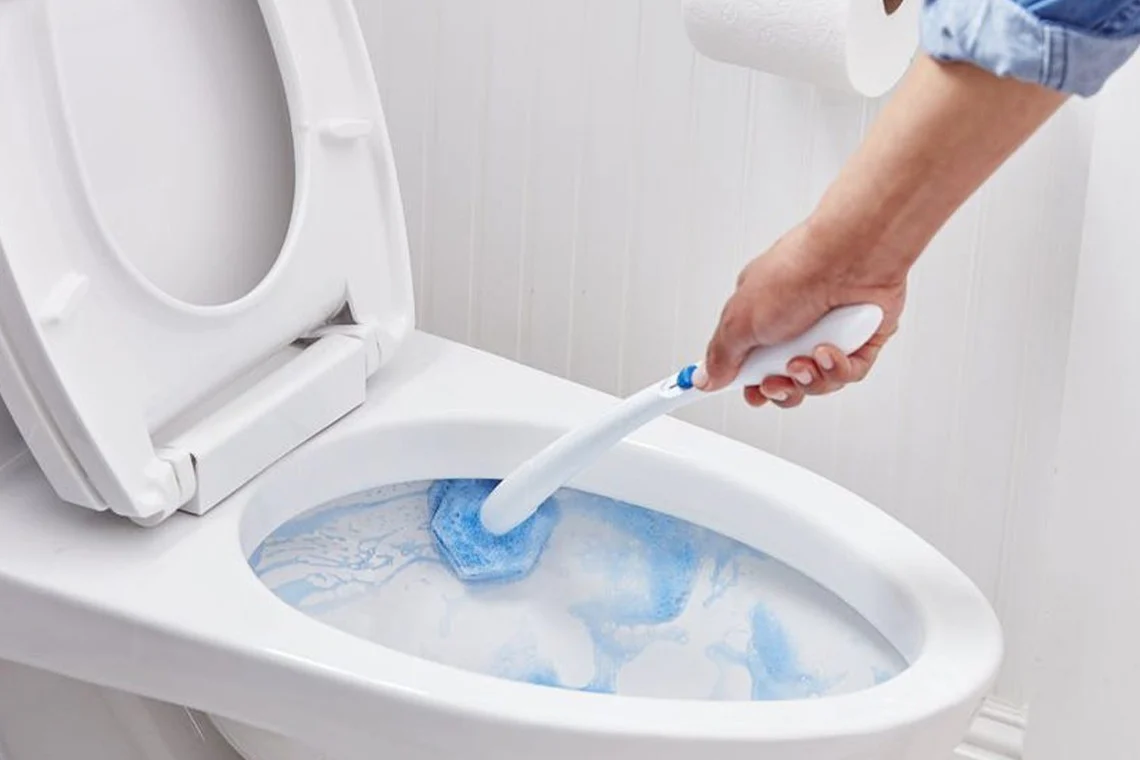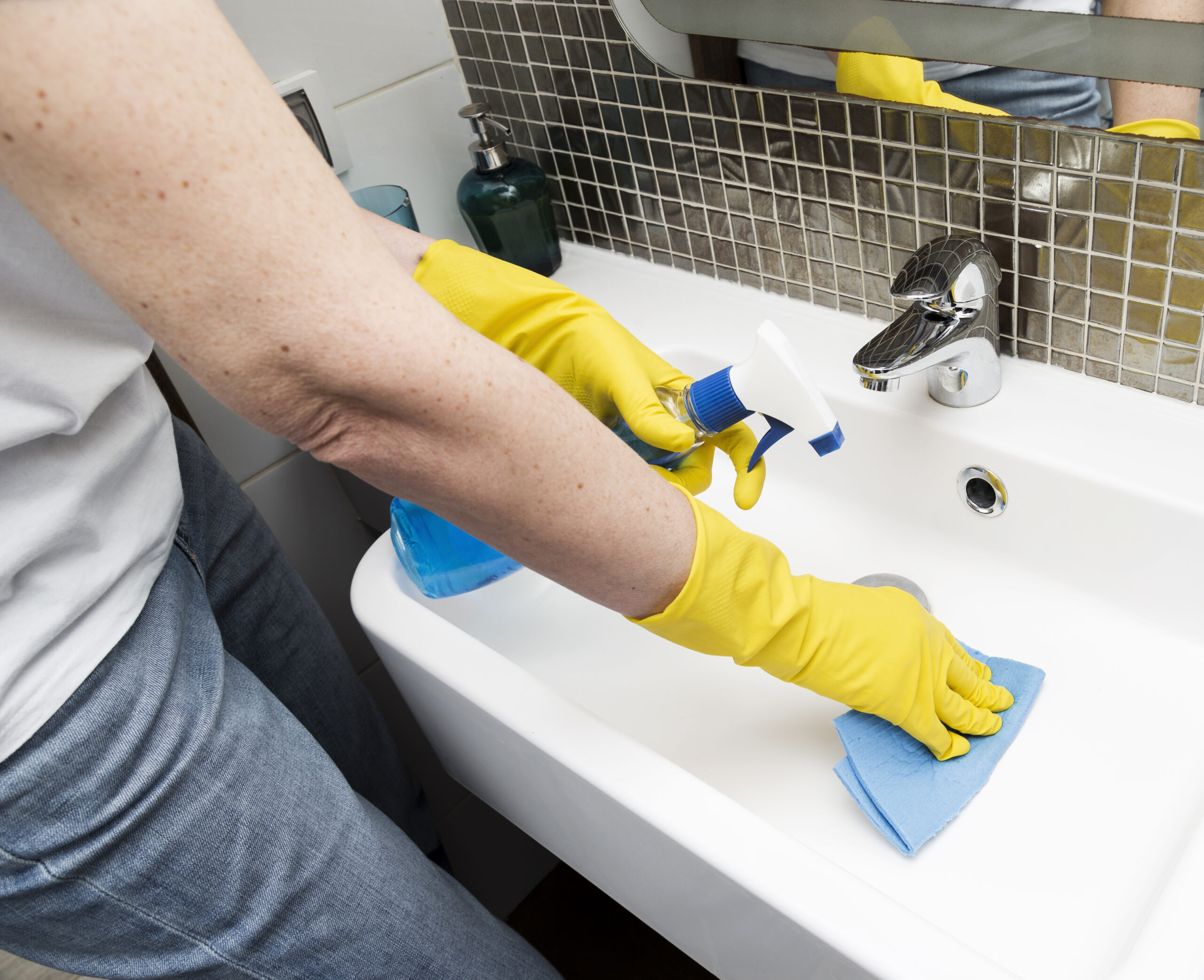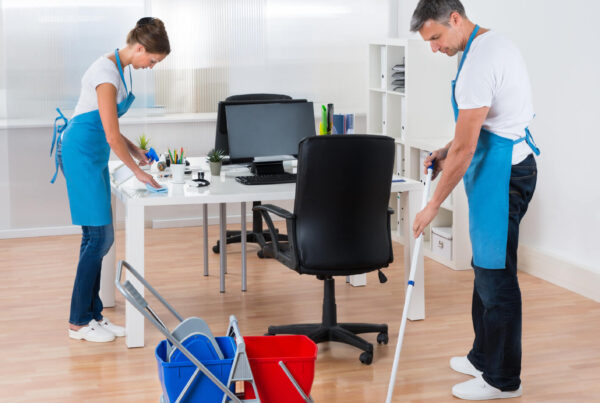Can You Use a Septic Cleaner in a Regular Toilet? – A Guide to Bathroom Cleaning
Cleaning the bathroom is a chore that no one enjoys, but it’s an essential task for ensuring your family’s health and safety. So how do you know what cleaning product to use in each fixture? From septic cleaner to the standard all-purpose toilet cleaner, there are several options available when it comes to keeping your space clean. In this post, we’ll cover the question “can you use a septic cleaner in a regular toilet” as well as address the differences between these types of cleaners and explain how you can go about using them correctly — so you can make sure each part of your bathroom is spotless and hygienic! With that being said, let’s get started!

What is the Difference between a Septic Cleaner and All-Purpose Toilet Cleaner?
When it comes to cleaning your bathrooms and toilets, understanding the benefits of either a septic cleaner or all-purpose toilet cleaner can be the difference in achieving brilliant results or disappointing ones. Generally, an all-purpose cleaner is designed to quickly break down dirt and grime while providing a pleasant scent. A septic cleaner, on the other hand, contains microbial cultures that consume organic waste and help to maintain healthier septic systems over time. As such, it is important to consider which type of cleaner is best for your particular needs depending on whether you are looking for simply a clean bathroom or one that’s better maintained for a longer period of time.
Can You Use a Septic Cleaner in a Regular Toilet?
It is not recommended to use a septic cleaner in a regular toilet. Septic cleaners are designed to treat waste found in septic tanks, which contain different bacteria and conditions than regular toilets. Regular wastewater treatment chemicals are not usually strong enough to break down solids found in a septic tank, so using them in a regular toilet can cause hazardous environmental pollution. Additionally, when used in a pump-based system such as a typical home septic tank, the action of the pump may cause larger particles to be suspended in the liquid if they are not broken down and could lead to filter or plumbing issues. Therefore, it is important to consider the differences between regular toilets and those with septic tanks before using any cleaner product.
What are the Pros and Cons of Using a Septic Cleaner for your Toilet
Septic cleaners are a seemingly great solution for many toilet owners as they work to break down and dispose of waste quickly and effectively. While usually easy to use, there are some pros and cons to using one in the home. On the plus side, these cleaners reduce the amount of drain blockages caused by bathroom waste, meaning toilets stay cleaner for longer periods of time. Furthermore, they also help to minimize odors more thoroughly than other types of cleaners. However, it is important to note that these cleaners require repeated use in order to prevent septic tank build-up, which can result in costly repairs if not properly maintained. Additionally, if used incorrectly or too often these cleaners can damage pipes and cause leaks. Altogether, septic cleaners are great aids for managing your toilets but may come with additional costs or risks depending on use and maintenance.
When Should You Use a Septic Cleaner?
Septic cleaners should be used when a septic tank is present and being utilized by the toilet. To properly maintain your septic system, it is recommended to use a septic cleaner at least once every few months. This will help to break down organic materials as well as prevent any build-up of solids that could lead to blockage or damage to the system. Additionally, it is important to be mindful of the amount being used, as overusing a septic cleaner can lead to hazardous conditions in your home and also damage the environment.
When Should You Use an All-Purpose Toilet Cleaner?
All-purpose toilet cleaners are great for day-to-day use as they can quickly and easily break down dirt and grime, leaving behind a pleasant scent. Additionally, using an all-purpose cleaner also helps to keep fixtures clean and prevents the buildup of bacteria or mold that could cause health issues. However, it is important to note that these cleaners do not provide any long-term maintenance and are unable to break down solids or waste in the same way as a septic cleaner. Therefore, they should only be used for regular household cleaning and not as a substitute for a septic system cleaner.
What are the Steps to Clean Your Toilet?
Cleaning your toilet does not have to be a daunting task. To get the job done efficiently and without any unnecessary prolonged efforts, it is important to follow some simple steps. Firstly, ensure that all hardware components like the seat, lid, flush lever, and handle are removed from the toilet. After removing these components, scrubbing the inside of the bowl is essential using a disinfectant or an all-purpose cleaner. Secondly, brush around the rim edges and make sure that you clean the nooks and crannies of your toilet for optimal cleaning efficiency. Once this is complete, rinse your brush thoroughly in a sanitized solution to prevent bacterial growth. Finally, after scrubbing and rinsing your brush, reassemble your toilet components for a job well done! Following these easy steps can help you keep your toilet squeaky clean at all times!
If you’re wondering “How to Clean the Rim of the Toilet?” Dive into our step-by-step guide and elevate your bathroom routine!
Conclusion – Can You Use a Septic Cleaner in a Regular Toilet?
In conclusion, it is important to make sure you know the difference between a septic cleaner and an all-purpose toilet cleaner. With knowledge of the difference, you can then decide whether a septic cleaner is the best option for your specific toilet needs. Keep in mind that there are pros and cons to using a septic cleaner for your toilet. While septic cleaners provide powerful cleaning power with minimal ingredients, they can be costly and only effective with certain toilet types. For those looking for the most thorough cleaning of their toilets, following the steps outlined above should help you achieve that goal regardless of what type of cleaner you choose. Ultimately, regular maintenance and keeping up with cleaning are essential to maintaining a fresh-smelling and clean bathroom! We hope this blog post helped you answer the question “can you use a septic cleaner in a regular toilet?”
If you need help with your bathroom or house cleaning, we can help! At ProClean we specialize in providing top-notch house cleaning services and general maintenance. Contact us today to get started with our team!
Additional Resources – Can You Use a Septic Cleaner in a Regular Toilet?
If you are looking for a reliable move out cleaner PROCLEAN is here to help! Check out our additional resources below:
House Cleaning Service Page Resources
[/fsn_text][/fsn_column][/fsn_row]




